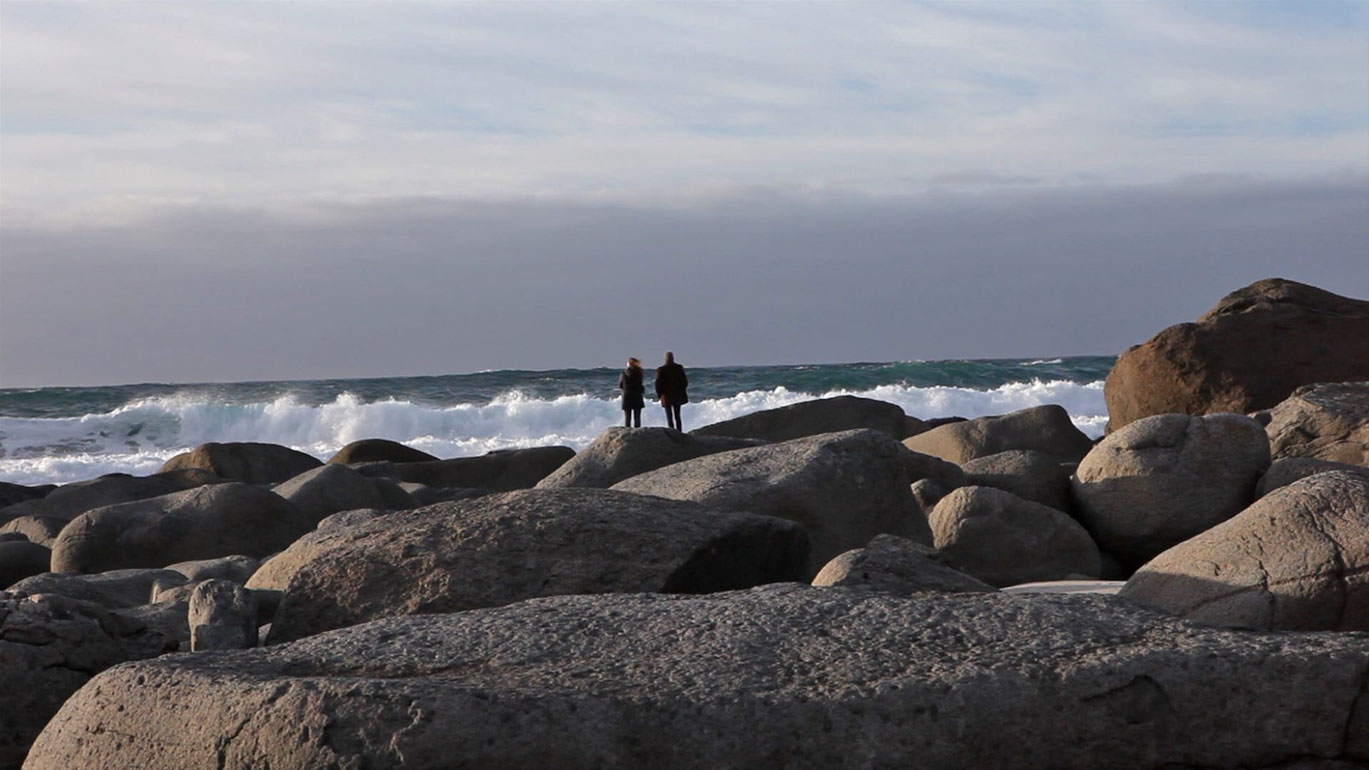She wants him to go. She wants him to stay.
A man sets up the camera; the world turns upside down; he turns away. A hospital room at night: the slightly trembling gaze of the camera scans the room without settling on anything in particular. The man hits the metal front of a bedside cabinet with his foot. Then he sits by the window with a blank look; he plays “Happy Birthday” on his guitar as the light pours through the window in spectral colors. One hard cut later he is in bed, crying. And another cut: to a rough, choppy sea under a grey sky. The filmmaker says the title from offscreen. Analogous to the cinematic gaze, she gently runs her hand over fabric, moss, and skin.
The lyrical form is Viki Kühn’s territory, while at the same time she seeks the greatest possible immediacy. This film deals with the lack of communication in a relationship that has been damaged by mental illness, but also about quiet attraction and wordless touch, about an almost agonizing form of connectedness. The underlying intention is to understand all of this sensually, from up close, from a distance. At the end the man sings a sad song. She takes hold of his hand; he repeatedly pulls it away from her. She wants him to go, she wants him to stay: as the title makes clear, this is a love story.
Viki Kühn possesses a sensitivity that is extremely rare in film, both because of her refusal to shift to the overtly profound, and because her approach remains quite simple. This is precisely how she guarantees the complexity of her associative montages. The images shown are ostensibly not “significant”, because they are just significant, every single one of them. That is, behind all the objects and movements that are considered ordinary, inconsequential, there is something decisive that can only be reached when one abandons oneself to the seemingly irrelevant, the “insignificant”, and makes a commitment to it.
(Stefan Grissemann)
Translation: John Wojtowicz
Sie möchte, dass er geht, sie möchte, dass er bleibt
2021
Austria, Germany
13 min



